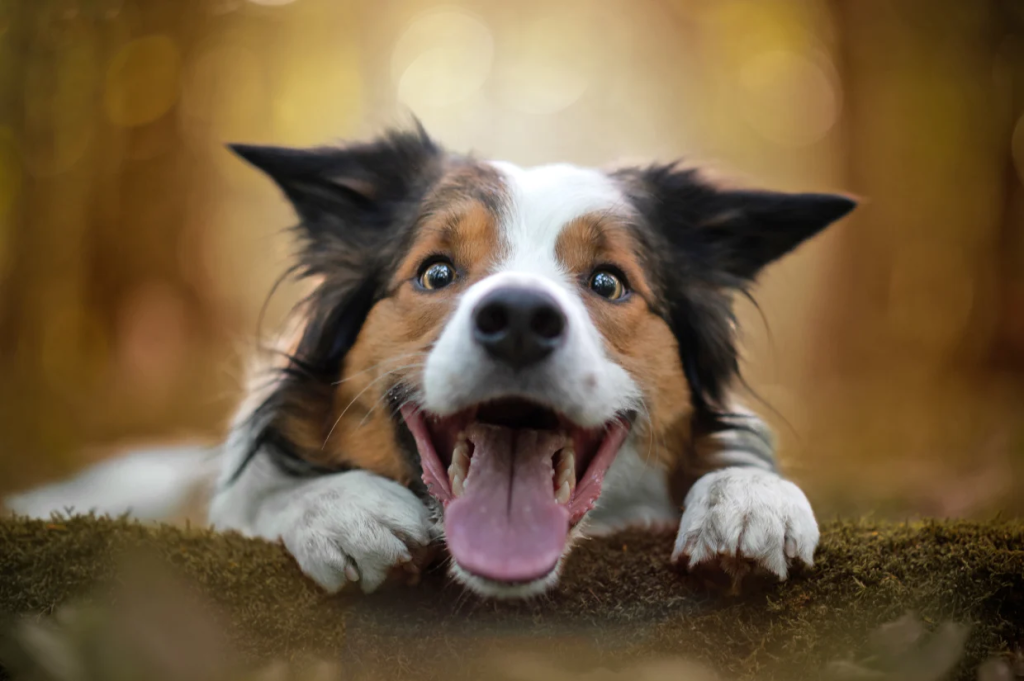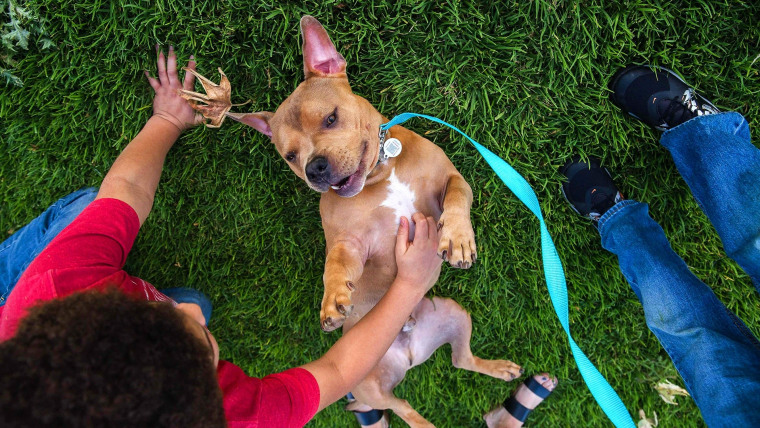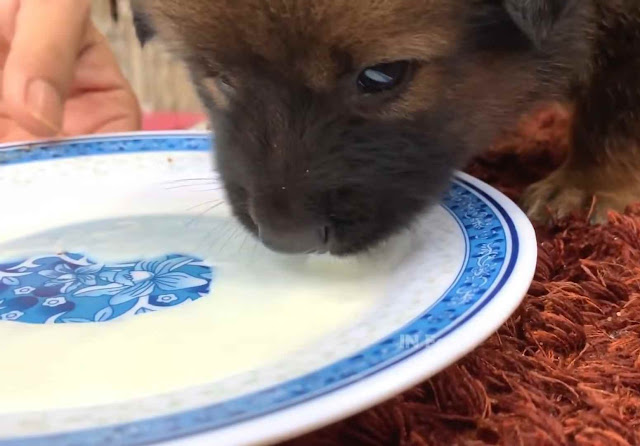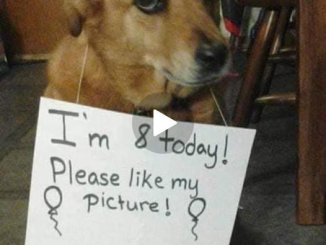Canine eggheads enjoy playing with toys and retrieving objects.

“Gifted” dogs, who have a rare talent for learning lots of words for objects easily, also turn out to be more playful than other dogs, a new study finds.
Prior research in humans has shown a link between playfulness and problem-solving abilities, so animal behavior researchers from Eötvös Loránd University in Budapest, Hungary, wondered if the same was true for rollicking pups.
What is a gifted dog? In the new study, it was Border collies who had proven in prior research that they were able to learn as many as 12 new words per week and then retain them for months.
To take a closer look at the possible association between giftedness and playfulness in dogs, Claudia Fugazza, a researcher in the university’s department of ethology (the study of animal behavior), and her colleagues asked the owners of 165 Border collies to fill out dog personality questionnaires. Twenty-one of the dogs were gifted and the other 114 were just randomly selected with no testing for word learning ability.
The surveys assessed the personality of the animals in five categories:
- Fearfulness, including fear of people, nonsocial fear, fear of dogs, fear of handling.
- Aggression toward people, including general aggression and aggression in certain situations.
- Activity/Excitability, including excitability, playfulness, active engagement and companionability.
- Responsiveness, such as trainability and controllability.
- Aggression toward animals, including aggression toward dogs, prey drive and dominance over other dogs.
For the evaluation of playfulness the owners were asked to rate their dogs in three areas:
- Dog gets bored in play quickly.
- Dog enjoys playing with toys.
- Dog retrieves objects, such as balls, toys and sticks.
The researchers focused solely on Border collies because earlier experiments found that the breed is more likely to be good at learning new words compared to others.
After collecting the survey responses, the researchers then compared the responses from owners of gifted dogs to those from the owners of dogs who had not been identified as gifted.
Playfulness was the only personality trait that was consistently different between the two groups.
It’s not clear from the study whether it’s the playfulness that helps the dogs learn more words, or whether the extra playful ones ended up with more opportunities to learn, said Fugazza, the study’s lead author, said in an email. That’s because gifted dogs tend to learn words for objects when their owners are playing with them.
Are playful dogs smarter?
Not exactly.
“Intelligence is the result of diverse cognitive traits that allow individuals to flexibly solve different types of problems,” Fugazza explained. “Giftedness refers to an extremely good capacity in the case of a specific skill.”
So, maybe gifted dogs are like people who score high on the verbal part of the SATs.
If your pup doesn’t learn words easily, it doesn’t mean it’s a dumb dog. Adam Boyko, an expert in canine genomics, reassures owners that canine intelligence is more than that.
“Both dogs and wolves are playful when they are puppies, but dogs really evolved to living in the human environment and to responding to social cues,” said Boyko, a specialist in the genetics of behavior and an associate professor at the Cornell University College of Veterinary Medicine. “It’s not surprising that the more playful ones exhibit better learning in the domain of learning human words. And it’s not surprising that Border collies, who are bred to respond to human cues, show the propensity to learn words more than other breeds.”

Other breeds of dogs might show intelligence in other ways, Boyko said. For example, wolves are very intelligent although they don’t typically pick up on human cues.
“But they can figure out how to escape,” said Boyko. “Where dogs would look for a person to help, wolves would see how humans did a latch and lock and then the wolves would do it themselves to get out.”
Boyko would like to take the study a step further and look at the genetics of the gifted dogs.
“This is a tantalizing correlation that might be meaningful if you are trying to build better service dogs,” he said.
One thing that can’t be determined from the study is whether the playfulness trait spurred owners to interact more with their dogs and thus teach them more words, said Dr. Nicholas Dodman, a professor emeritus at the Cummings School of Veterinary Medicine at Tufts University, CEO and president of the Center for Canine Behavior Studies and the author of “Pets on the Couch: Neurotic Dogs, Compulsive Cats, Anxious Birds and the New Science of Animal Psychiatry.”
Dodman said the study is interesting but needs to be replicated in a larger number of dogs.
“I would also like to see it done in a different breed,” he said.
The new findings might help people who want to buy or adopt a puppy. It suggests that playfulness might be a good attribute to consider.
“The playful ones might be more likely to interact with a person, assimilate words more easily and be more intelligent,” said Dodman.
“Heartbreaking Appeal: Abandoned Puppy Clings to Hope with Plea for Rescue”
In a world where compassion often shines its brightest in the midst of adversity, a poignant story of a vulnerable puppy’s plea for help has stirred the hearts of many, serving as a powerful reminder that acts of kindness can transcend even the harshest circumstances. The scene opens with a small, abandoned puppy adorned with a heart-wrenching sign that reads “Help Me,” a desperate cry for assistance that almost went unnoticed by a world seemingly too busy to care.
The story unfolds as a young child stumbles upon the sight of this forlorn puppy, shivering and hungry, left to fend for itself. With innocence and empathy, the child recognizes the urgent need for intervention and makes a call to those who can offer help.

Responding swiftly and compassionately, a dedicated team from an animal welfare organization arrives on the scene. Armed with warmth, nourishment, and a deep-seated commitment to making a difference, these volunteers extend a lifeline to the trembling puppy. Wrapping it in soft blankets, offering sustenance, and cradling it with the utmost gentleness, they exemplify the power of human empathy in its purest form.
The puppy’s journey from despair to hope is a testament to the strength of collective compassion. As it devours the offered sustenance with a hunger that goes beyond the physical, the transformation begins. With each bite, the puppy is nourished not only in body but also in spirit, finding a flicker of hope amidst its dire circumstances.

Soon after satiating its hunger, the puppy’s weariness takes over, and it drifts into a peaceful slumber. This vulnerable state serves as a poignant reminder of the vulnerability of all creatures, a reminder that resonates with the viewer’s sense of empathy.
As the puppy awakens, a beautiful metamorphosis takes place. In the company of kind-hearted individuals and the comforting presence of other dogs, the once-desolate creature begins to flourish. Its playful interactions and moments of unadulterated joy become a beacon of resilience, a testament to the capacity for happiness and healing even after facing abandonment.
The heartwarming narrative of this rescued puppy touches on themes of responsibility and compassion, inviting reflection on our roles as stewards of the animals that share our world. It is a stark reminder that each life, no matter how small or seemingly insignificant, carries its own inherent worth and deserves a chance to thrive.

The final chapter of this story is one of promise and commitment. The compassionate individuals who stepped in to save this puppy’s life also vowed to give it a forever home. The once-abandoned puppy will now be cherished as a member of a loving family, a testament to the enduring impact of compassion and care.
This heartrending tale of rescue and redemption demonstrates that in a world often marred by indifference, a simple act of kindness can become a catalyst for change. The puppy’s plea for help, conveyed through a handwritten sign, touched hearts around the globe, uniting people in a shared sense of empathy and determination.
As we reflect on this story, let it serve as a call to action—a reminder that our compassion can reshape lives, that our empathy can bridge the gaps of understanding, and that our collective effort can make a world of difference for those who cannot advocate for themselves. The tale of the adorable, abandoned puppy with a heartfelt plea is a testament to the power of compassion, a testament that resonates far beyond its pages and encourages us all to be the change we wish to see in the world.



Leave a Reply